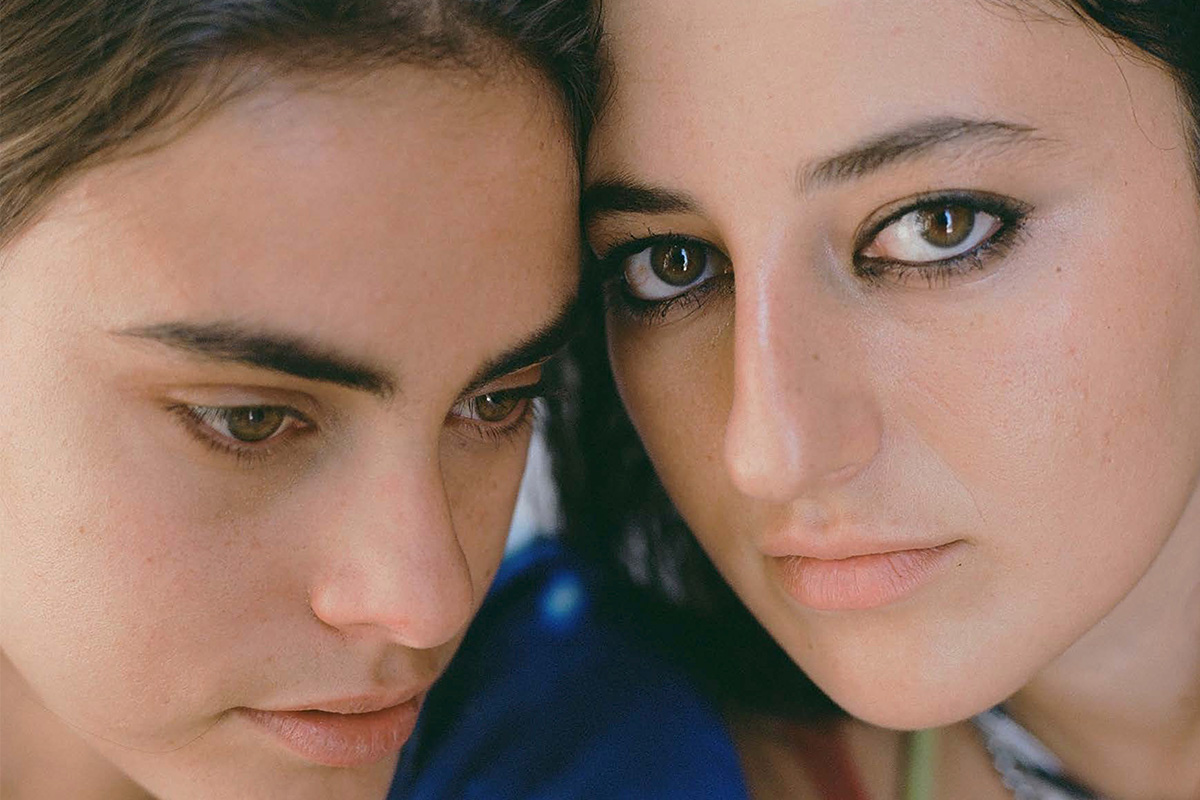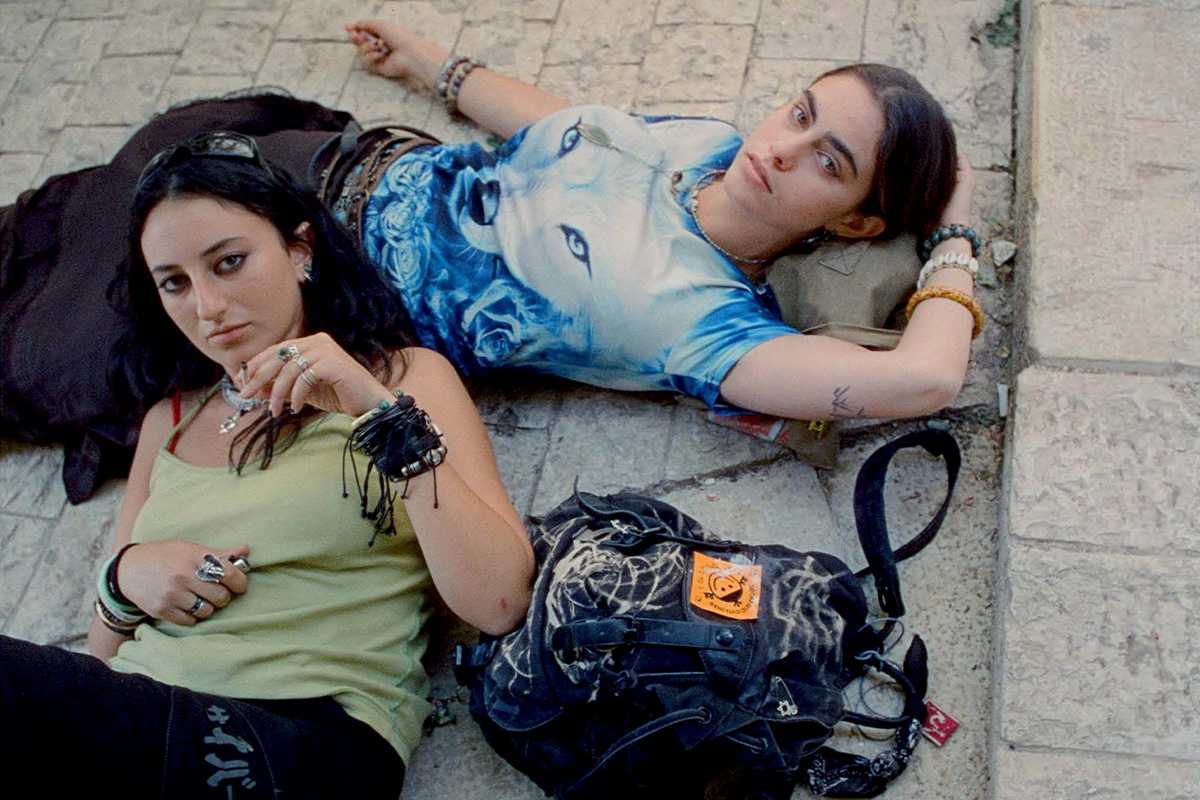Most American media depictions of going off the derech — leaving a strict religious life — show an all-or-nothing decision. Anyone questioning their upbringing or their role in their community might be cut off from their family and support system, left to face the “real world” alone. “Arava,” a new short film from Sarah Meital Benjamin, challenges this binary image of Jewish life, showing how connection and spirituality can flourish outside the confines of organized religious practice.
In the film, which debuts at the Palm Springs International ShortFest this week, the title character searches for meaning in her life like any other teenage girl. A Kurdish Jewish outcast from a religious home, Arava (Batèl Zaharaa Mann, who also co-wrote the script) wants to wear makeup and the clothes she likes, hang out with the friends she chooses and find a moment of peace and reflection that helps her feel more in tune with herself and like a part of something bigger. (She isn’t sure if that something is God anymore.) Arava’s life may seem fragmented to an American Jewish viewer, but to Benjamin, the protagonist’s multifaceted identity reflects the intersecting cultures of Jerusalem then (the film is set in the early 2000s) as well as now. “Layers of society that were a bit pushed aside — I think Jerusalem is made up of mostly those layers,” Benjamin, a Jerusalem native, explains. “They come together in Jerusalem on a daily basis, and I think that this fusion creates this identity search that I’m following in this film. A place like Jerusalem just pushes very young people to go for this search very early.”
Benjamin is no stranger to this journey, having grown up in and out of religious spaces. “We were religious, but we had animals like cats and dogs, which was weird,” she says of her family’s place in their community. “My mom wore eye makeup, like black eyeliner, but we went to Chabad.” Benjamin began questioning her identity at a young age, and based “Arava” in part on her time as a teenage runaway, when she immersed herself in Jerusalem’s punk scene.

On Arava’s journey, she and her rambunctious best friend Tzipi (Swell Ariel Or of “The Beauty Queen of Jerusalem”) find themselves at a teen outreach center, where a rabbi (Shlomo Stern) tells a group of kids dressed for a rave that the month of Elul is like “high-speed internet.” That is to say, the connection to God is faster and more pronounced. The film’s credits identify this center as Zula, a real place run by the Orthodox Union, but Benjamin based the scene on the many centers that cater to Jerusalem teens leaving religious communities or unstable homes. “I definitely spent a lot of time in them as a teenager,” Benjamin says, noting that Arava has just returned from a government-funded “troubled youth” center — translated as “rehab” — at the beginning of the film. “Jerusalem is kind of a core place for quote-unquote ‘lost’ youth,” Benjamin says of the plethora of both religious and secular programs available. Many LGBTQ young people also turn to these centers for support, as Benjamin did.
Arava, who is questioning her own sexuality, is both humbled and frustrated by her experiences at the center and finds herself butting heads with Tzipi, who isn’t afraid to fight tooth and nail to prove herself and doesn’t care what her reputation may cost her. In the tradition of lost Jewish souls searching for meaning, Arava and Tzipi hitchhike to Safed, stealing hearts (and wallets) along the way.
“Something we used to say in Jerusalem a lot when I was a teenager was: in Jerusalem, you get lost. In Safed, you get found,” Benjamin says of the film’s transition to the ancient city where Jewish mystics and scholars studied and wrote great texts. The adventure exemplifies the tension between religion and faith, a defining theme of Benjamin’s work as a filmmaker and photographer. “These are questions that I deal with a lot in my life, still as an adult,” she says; her next film, a feature-length built on the foundations of “Arava,” will explore them further.
In many ways, Benjamin’s life today is worlds away from her childhood. But just as Arava lights Shabbat candles in a tank top, faith is woven into her worldview outside of the constraints of her religious upbringing. For a moment near the end of the film when Arava seeks solace, Benjamin invoked Breslov Hasidic meditation, which she first studied as a teenager. “It seemed like a higher ground” than what she had grown up with, and though Benjamin is no longer observant, the personal prayer practice of hitbodedut guided her film and protagonist. This ending to the film is a reminder that Jewish culture and practice remain open to us even when we feel lost or abandoned. Benjamin says she still feels “very connected” to her religious life, even without some observances. “I still wonder how the two things can be.”



